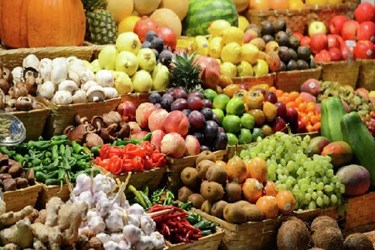Russia's Ban On Food Imports — Who Will It Hurt And Help?
By Melissa Lind, contributing writer

The recent banning of food imports by Russia may affect certain sectors of countries in support of recent sanctions against Russia, but the main victim may be the Russian consumer, while others may benefit.
Russian President Vladimir Putin recently banned certain foods from being imported into Russia. This was a direct reaction to the sanctions placed on Russia by both the U.S. and the E.U. Sanctions against Russia targeted energy, weapons, and five out of six top financial institutions as they were mainly aimed at certain pro-separatists activists. Russia responded by banning imports of animal proteins, certain nuts, and other fresh foodstuffs from the E.U., U.S., and other countries who have supported sanctions against Russia, but who will it hurt — and help?
The number of imported food products across the globe has risen in the last decade. This is largely due to the expanding middle class wanting more exotic, imported foods. The sudden lack of those products may have a dramatic effect on the Russian consumer, driving food prices higher at a time when inflation is already running amuck. The U.S., the Netherlands, Germany, and Poland are some of Russia’s main food suppliers, but the largest victim of the banning of imports by Russia will likely be the Russian people. Last year, foods from mentioned countries accounted for up to 55 percent of agricultural imports, totaling about $43 billion.
5 Steps To Meet Increasing Global Food Supply Demands
Other countries will be hurt as a majority of food exports in certain sectors have traditionally gone to Russia. Hardest hit areas may include former Soviet Bloc countries such as Lithuania, Estonia, and Ukraine, and E.U. countries such as Poland, Finland, the Netherlands, Germany, and Denmark. Non-European Union countries, such as Norway, export food products to Russia will now have to scramble for customers to export to. In the U.S., the poultry industry is likely to see the largest hit, but Russia’s consumption only amounts to about 7 percent of total domestic poultry production.
Russian leaders say the sanctions give Russia’s agricultural producers an opportunity to become more productive. However, it is likely that local, fresh foods producers won’t be able to make a significant difference in the year planned for the ban. A more likely scenario includes the deficit being made up by countries that are not supporting anti-Russian sanctions — specifically Brazil, China, New Zealand, Ecuador, Chile, and Argentina. In addition to countries that may see increased demand for food product exports — and though certain sectors of every country included in the ban may be negatively affected — consumers in certain areas looking to buy foods at lower prices may benefit.
Achieving Global Certification In Food Safety & Quality
Countries with sector specific exports will need to offer bargains to sell products, which may mean a drop in prices for those particular items. Included in this niche are European-produced cheeses, regional fruits and vegetables, and seafood. In the U.S., this could lead to cheaper prices of meat, poultry, and nuts.
As a whole, though specific sectors in certain countries will see an impact, the overall economies of the E.U., U.S., Canada, and Australia are not expected to feel much of a pinch.
